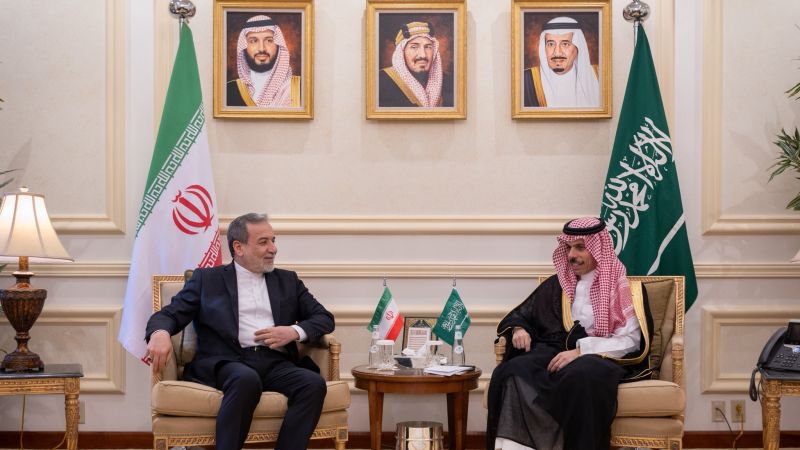In a notable step toward regional reconciliation, Saudi Foreign Minister Prince Faisal bin Farhan hosted his Iranian counterpart, Abbas Araghchi, for official talks in Mecca on Tuesday. The high-level meeting signals continued momentum in normalizing relations between the two regional powers after years of political tension.
This marks Araghchi’s first official visit to Saudi Arabia since attending the BRICS summit in Brazil, highlighting a renewed willingness on both sides to engage in diplomatic dialogue. The visit is widely viewed as an effort to strengthen bilateral ties and enhance regional peace and security across the Middle East.
Focus on Regional Stability
According to Iran’s Foreign Ministry, the discussions centred on regional developments, including de-escalation efforts amid ongoing unrest and threats. The ministers explored cooperative frameworks to stabilise conflict zones and reduce external interference in regional affairs.
The meeting took place amid growing concerns over geopolitical instability, with both countries signalling their desire to move past decades of rivalry and contribute to a more collaborative regional order.
Diplomatic Messaging from Tehran
Ahead of the visit, Araghchi published an op-ed in the Financial Times, delivering pointed criticism of U.S. foreign policy in the region. He accused Washington of prioritising Israeli interests over balanced diplomacy and argued that “negotiations held under the shadow of war are inherently unstable.”
He further criticised recent Israeli airstrikes on Iranian territory and described them as key disruptions to diplomacy. Despite the sharp rhetoric, Araghchi reiterated Iran’s commitment to responsible dialogue and efforts to prevent a wider regional conflict.
Nuclear Talks and Obstacles
The Iranian minister also revealed that U.S.-Iran nuclear talks had seen “significant progress” in recent months. However, he blamed a sudden Israeli military action for derailing momentum just days before a planned sixth round of negotiations. Citing the collapse of the 2015 nuclear agreement and ongoing mistrust, Araghchi expressed scepticism about the future of talks with Washington.
Still, he noted that recent discussions with U.S. special envoy Steve Witkoff had been more constructive than years of prior exchanges, suggesting that diplomatic channels remain open, albeit fragile.
A Turning Point in Saudi-Iran Relations?
The Mecca meeting follows earlier steps taken by both Riyadh and Tehran to rebuild diplomatic ties, including restoring embassies and opening new consulates. The renewed engagement is part of a broader regional realignment, as Gulf states navigate shifting global alliances and seek to manage security through dialogue over confrontation.
While longstanding issues remain unresolved, Tuesday’s meeting underscores a growing recognition that bilateral cooperation is essential for lasting stability in the Middle East.
With tensions still simmering in nearby conflict zones and international scrutiny mounting, the path ahead may remain complex—but this meeting marks a symbolic and strategic advance in Saudi-Iranian relations.

